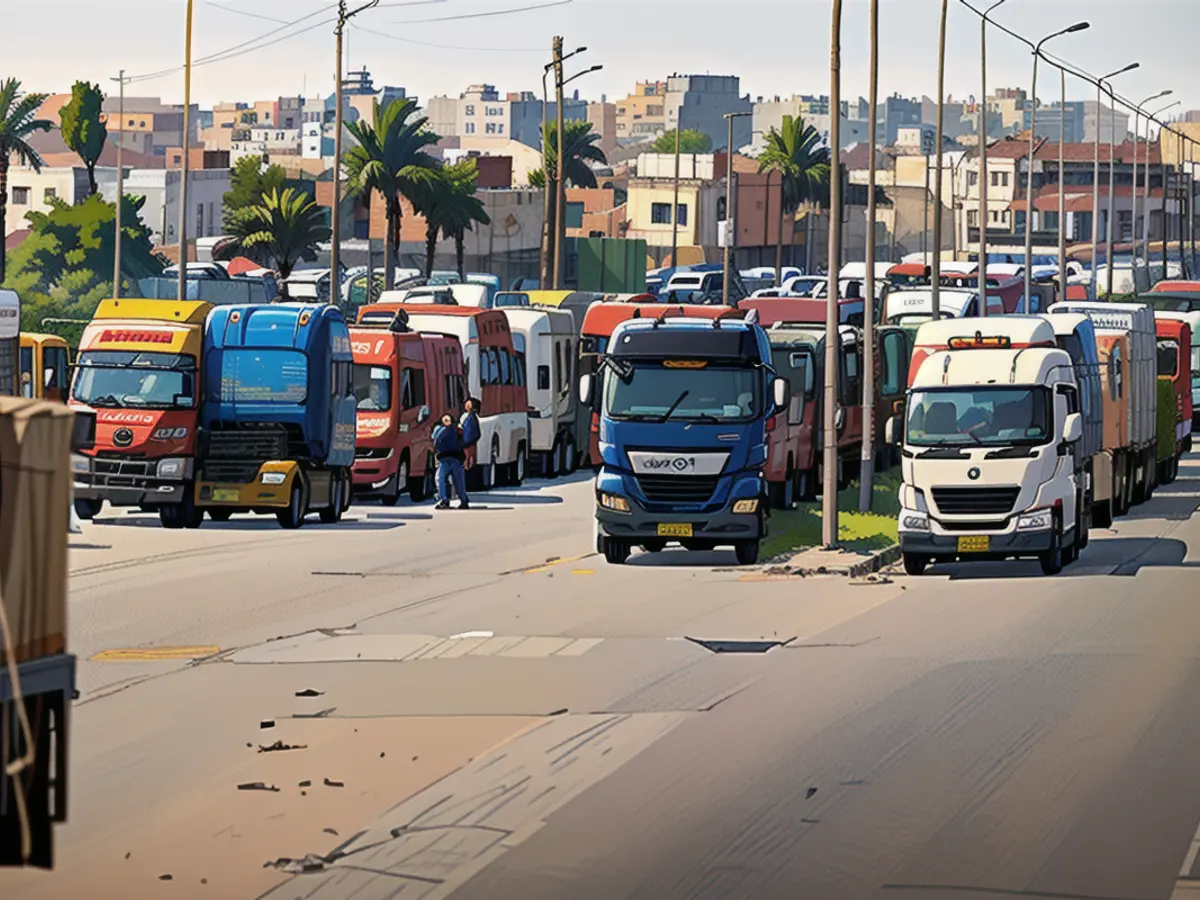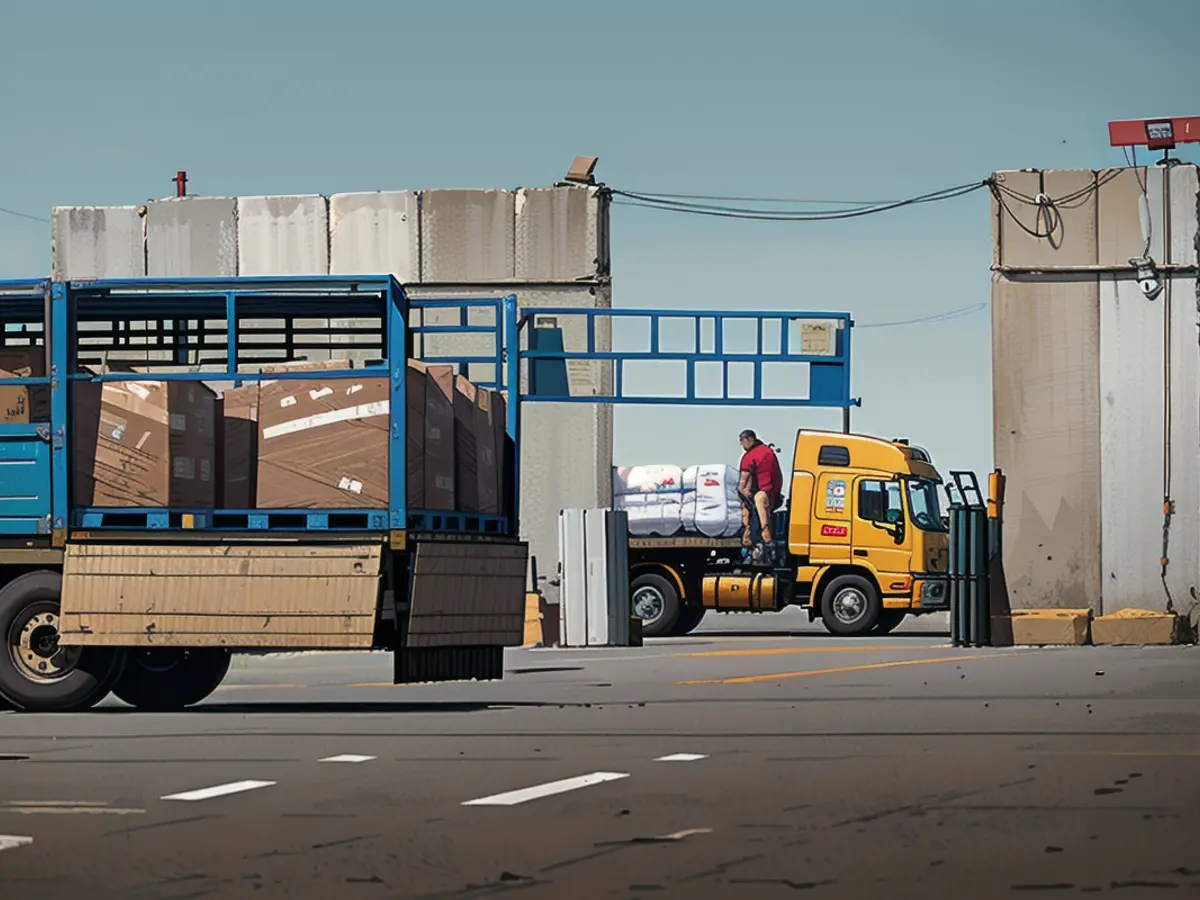United Nations reports a drastic reduction of almost two-thirds in humanitarian aid reaching Gaza after Israel's attack on Rafah.
"On Wednesday, the UN Office for the Coordination of Humanitarian Affairs (OCHA) reported that the amount of food and other essential supplies entering Gaza, which already falls short of the increasing requirements, has reduced significantly since May 7. The daily average of aid trucks reaching Gaza during this period dropped from 176 to just 58, signifying a 67% decline. Before the hostilities between Israel and Hamas commenced in October, about 500 trucks entered every day, as according to the UN. OCHA has been advocating for the return of aid deliveries to this volume. The decline in aid delivery stemmed from Israel's offensive on Rafah aimed at dismantling Hamas, which was believed to have regrouped in the southern part of Gaza after Israel's attack on the north. The Gazan side of the Rafah crossing has been under Israel's control since May 7, and the inflow of aid has been disrupted, leading to an accumulation of relief materials in Egypt and the Strip's imminent risk of starvation.
A senior Israeli security official expressed concerns that the conflict in Gaza could persist into next year, undermining the possibility that the operation in Rafah would lead to an end of the offensive.
On May 15, the International Court of Justice (ICJ) deemed the humanitarian situation in Gaza as catastrophic and mandated Israel to maintain the Rafah crossing for 'unrestricted provision at scale' of aid.
Israel and Egypt attributed the aid blockage to each other. Israeli Foreign Minister Israel Katz pressed for Egypt to permit the reopening of the crossing, while his Egyptian counterpart Sameh Shoukry alleged that Katz was misrepresenting the facts. Shoukry argued that Israel's military near the crossing and the hazard it poses to humanitarian staff constitute the reason for Egypt's inability to send relief items into Gaza. Rafah previously served as a major conduit for assistance to reach Gaza and cater to the needs of the injured Palestinians and foreign nationals who left the Strip for treatment in Egypt in November.
Despite the ongoing hostilities, aid continues to arrive into Gaza from two other passages: Kerem Shalom in the south and Erez in the north. The Kerem Shalom crossing was reinstated a week ago following a consensus between Egyptian President Abdel Fattah El-Sisi and US President Joe Biden to transport UN relief through this route on a temporary basis. Biden believed that this move could 'save lives' while negotiations are underway to reopen the Rafah crossing.

On Monday, 370 aid trucks, which were dispatched by Egypt, were spotted at Kerem Shalom. However, only 30 of these trucks were collected by the United Nations Relief and Works Agency for Palestinian Refugees (UNRWA) for distribution within the Gazan territory. The UN agency noted that even though the Kerem Shalom crossing is meant to remain functional, it is challenging for aid organizations to access it from the Gaza side.
On the Erez side, the aid has managed to enter partially, with the western side being accessible. From May 1 to May 20, the World Food Program facilitated the delivery of 500 trucks carrying 7,000 metric tons of aid through this crossing.
Simultaneously, the US-built temporary pier for transporting relief items into Gaza that cost $320 million and came into operation on May 17, disintegrated on Tuesday. It has been planned to extract the pier from the Gaza coastline and take it to the Israeli port of Ashdod for repairs, which is likely to require more than a week."

Read also:
- This will change in December
- Dikes withstand water masses so far - Scholz holds out the prospect of help
- Fireworks and parties ring in 2024 - turn of the year overshadowed by conflicts
- Attacks on ships in the Red Sea: shipping companies avoid important trade route
The Middle East region, particularly Gaza, has been significantly affected by the reduction in humanitarian aid due to global concerns. Internationally, the World Food Program and other aid organizations have been attempting to provide relief to Gaza, despite challenges.
Source:







